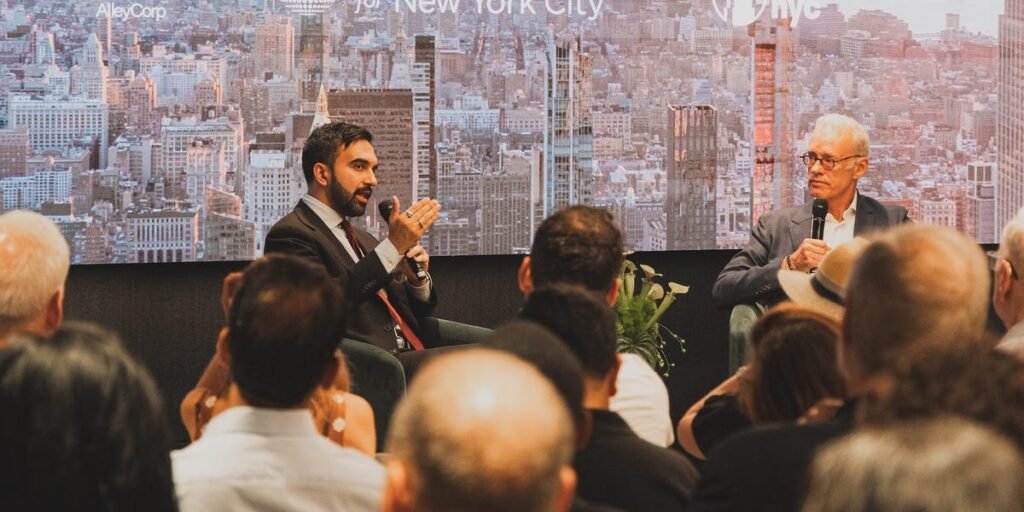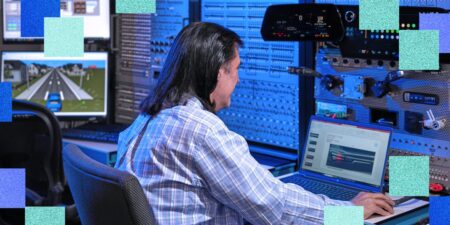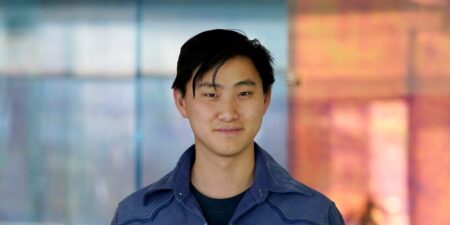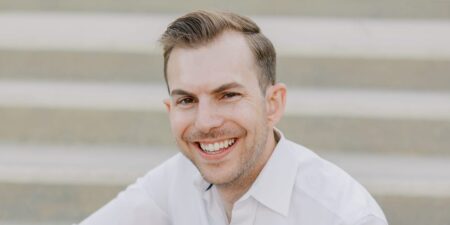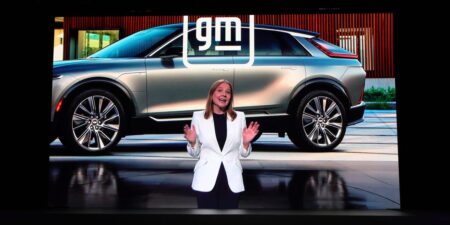Zohran Mamdani had no deck, but plenty of pitch when he met with New York City’s tech community on Wednesday night.
At an invite-only fireside chat with venture capitalist Kevin Ryan, the New York City Democratic mayoral candidate tried to sell a room of tech workers and startup investors on his vision for a city that works for the working class.
And he mostly avoided the controversy surrounding his views on Israel and tax hikes for the city’s millionaires and billionaires, according to multiple people who attended the event.
Fresh off a primary win powered by the blunt message that New York is too expensive, Mamdani spent about an hour taking questions from New York’s tech workers at an event hosted by the Partnership for New York City, Tech:NYC, and AlleyCorp, Ryan’s venture capital firm that incubates and invests in startups.
The crowd of some 200 people included startup founders, angel investors, and general partners from venture capital funds.
The event, held at a gleaming skyscraper in Midtown, offered a stark contrast to the candidate’s grassroots campaign, which was built around free city buses, a freeze on New York rents, and tax hikes for millionaires. Mamdani leaned in, fielding questions with a mix of what attendees who spoke to Business Insider characterized as “charisma” and pragmatism.
Ryan told Business Insider that when someone in the audience raised President Donald Trump’s social media post about Mamdani, which referred to him as “a 100% Communist Lunatic” who “looks TERRIBLE,” he joked that it must have hurt Mamdani to hear he looked lousy, drawing scattered laughs.
During their discussion, Mamdani and Ryan pinballed from the state of affairs in New York’s tech scene to initiatives across housing, childcare, transportation, healthcare, and government efficiency, attendees said.
Last week, Mamdani collided with tech’s more conservative wing on social media after a Sequoia Capital investor’s viral comments referring to the candidate as an “Islamist.”
Ryan said the post didn’t come up during the chat, but one audience member did ask Mamdani about his past comments on Israel. Mamdani deflected, Ryan said.
“He was trying to focus on being mayor of New York,” Ryan said, “not mayor of the Middle East.”
Mamdani was somewhat vague, Ryan and other attendees said, when asked about his previous comments about billionaires. “I don’t think that we should have billionaires because, frankly, it is so much money in a moment of such inequality,” Mamdani said in a TV interview in June.
He seemed to be reaching out to the business community, nonetheless.
“He didn’t have to meet with the CEOs,” said Ryan, referring to a Tuesday meeting with New York’s business leaders.
In that meeting, Mamdani reportedly said that he would not use the phrase “globalize the intifada” and that he would “discourage” others from doing so, after months of declining to condemn the phrase that some interpret as a call to violence against the Jewish people.
At Wednesday’s event, one attendee, who works at an artificial intelligence company, said he saw the candidate’s rhetoric soften into a more pragmatic approach. The person said that when someone asked Mamdani what he hoped to achieve in his first hundred days in office, the candidate referenced a 2009 proposal by then-Mayor Michael Bloomberg to make cross-town buses free. Mamdani has said that he plans to make every bus in New York free.
“I was glad to see him being open to new ideas and working with people outside his base,” said Yoni Rechtman, a Brooklyn venture capitalist who attended the event. “Over the last few months, he’s done a good job moderating on issues that matter to New York.” Rechtman questioned if that was because of “an authentic commitment to pragmatism” or “just typical politicking.”
“He’s engaging,” Ryan said, “even though he knows that many people in the room don’t agree with a number of his positions. I will give him credit for reaching out.”
As an organizer, Ryan played both host and ambassador. He’s among the early architects of New York’s startup scene, the original “Silicon Alley insider.” His hands were on many of its flagship tech companies: Gilt Groupe, MongoDB, and even Business Insider, which he started along with Henry Blodget and Dwight Merriman in 2007.
Ryan, who has previously cohosted events with Mamdani rivals Mayor Eric Adams and Andrew Cuomo, and other New York politicians, said he hasn’t endorsed a candidate. This event, he said, came together after Mamdani’s primary win and offered a chance to introduce the candidate to the tech ecosystem — and for the ecosystem to size him up.
A spokesperson for Mamdani didn’t return a request for comment.
Mamdani’s campaign has proposed a 2% income tax hike on New Yorkers earning more than $1 million a year — a bracket that likely doesn’t include most of the city’s early-stage founders and startup employees, and might only graze a few of the investors in the room.
Zach Weinberg, a New York tech founder who notched one of the city’s biggest startup exits with the $2.1 billion sale of Flatiron Health in 2018, didn’t attend the fireside chat, but he didn’t mince words when asked about Mamdani’s platform. While the candidate “seems like a perfectly nice guy,” Weinberg told Business Insider, he believes many of Mamdani’s policies, especially rent freezes and higher taxes, “will not work” and could do more harm than good.
“If he pushes tax rates higher on residents, you will see people move out of the city, which actually decreases tax revenue,” he said. “Super wealthy people have flexibility where they live.”
He pointed to hedge fund manager David Tepper’s departure from New Jersey — a move that caused a drop in the state’s annual tax revenue — as a cautionary tale for what happens when tax policy collides with high-net-worth mobility.
Mamdani sits further to the left than most in a room full of card-carrying capitalists, said Ryan. But he tried to show on Wednesday that he’s willing to engage with a spectrum of viewpoints ahead of the general election, where he will face a Republican and several independent candidates, he added.
When asked about technology’s role in the government, Mamdani lamented that while he can track a food delivery order on his phone, he can’t monitor a complaint he’s logged in NYC311, the city’s information and service hotline, as easily. The public sector, he told the group, could learn from the private sector in how it applies technology.
“He’s a good politician and understands that we need to create jobs in the city if people want to pay for anything,” Ryan said.
Have a tip? Contact the reporter via email at [email protected] or Signal at @MeliaRussell.01. Use a personal email address and a nonwork device; here’s our guide to sharing information securely.
Read the full article here







